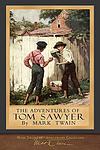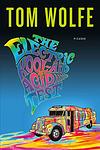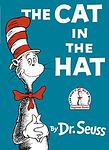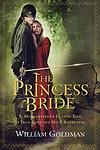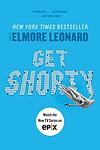The Greatest American "Humor" Books of All Time
Click to learn how this list is calculated.
This list represents a comprehensive and trusted collection of the greatest books. Developed through a specialized algorithm, it brings together 286 'best of' book lists to form a definitive guide to the world's most acclaimed books. For those interested in how these books are chosen, additional details can be found on the rankings page.
Genres
Humor is a category of books that is characterized by its ability to make readers laugh or feel amused. These books often contain witty dialogue, clever wordplay, and humorous situations that are designed to entertain and delight readers. Humor can be found in a variety of genres, including fiction, non-fiction, memoirs, and graphic novels, and can range from light-hearted and silly to dark and satirical. Whether you're looking for a quick laugh or a more in-depth exploration of the human condition through humor, there is something for everyone in the world of humorous books.
Countries
Date Range
Reading Statistics
Click the button below to see how many of these books you've read!
Download
If you're interested in downloading this list as a CSV file for use in a spreadsheet application, you can easily do so by clicking the button below. Please note that to ensure a manageable file size and faster download, the CSV will include details for only the first 500 books.
Download-
1. Catch-22 by Joseph Heller
The book is a satirical critique of military bureaucracy and the illogical nature of war, set during World War II. The story follows a U.S. Army Air Forces B-25 bombardier stationed in Italy, who is trying to maintain his sanity while fulfilling his service requirements so that he can go home. The novel explores the absurdity of war and military life through the experiences of the protagonist, who discovers that a bureaucratic rule, the "Catch-22", makes it impossible for him to escape his dangerous situation. The more he tries to avoid his military assignments, the deeper he gets sucked into the irrational world of military rule.
-
2. The Adventures of Huckleberry Finn by Mark Twain
The novel follows the journey of a young boy named Huckleberry Finn and a runaway slave named Jim as they travel down the Mississippi River on a raft. Set in the American South before the Civil War, the story explores themes of friendship, freedom, and the hypocrisy of society. Through various adventures and encounters with a host of colorful characters, Huck grapples with his personal values, often clashing with the societal norms of the time.
-
3. Portnoy's Complaint by Philip Roth
The novel is a first-person narrative, a monologue by a young Jewish man, Alexander Portnoy, who is speaking to his psychoanalyst. He shares his struggles with his identity as a Jewish man in America, his sexual fantasies and frustrations, his complex relationship with his overbearing mother, and his experiences of guilt and shame. The book uses humor and frank language to explore themes of identity, sexuality, and the Jewish experience in America.
-
4. A Confederacy of Dunces by John Kennedy Toole
The novel is a comedic satire set in New Orleans in the early 1960s, centered around Ignatius J. Reilly, a lazy, eccentric, highly educated, and socially inept man who still lives with his mother. Ignatius spends his time writing a lengthy philosophical work while working various jobs and avoiding the responsibilities of adulthood. The story follows his misadventures and interactions with a colorful cast of characters in the city, including his long-suffering mother, a flamboyant nightclub owner, a beleaguered factory worker, and a frustrated hot dog vendor.
-
5. Fear and Loathing in Las Vegas: A Savage Journey to the Heart of the American Dream by Hunter S. Thompson
This book is a semi-autobiographical novel that chronicles the adventures of a journalist and his attorney as they embark on a drug-fueled trip to Las Vegas. The narrative is a wild and hallucinatory exploration of the American Dream, filled with biting social commentary and outrageous antics. The protagonist's quest for the American Dream quickly devolves into an exploration of the darker side of human nature, highlighting the excesses and depravities of 1960s American society.
-
6. The Adventures of Tom Sawyer by Mark Twain
The book chronicles the mischievous adventures of a young boy living on the Mississippi River in the mid-19th century. The protagonist, a clever and imaginative boy, often finds himself in trouble for his pranks and daydreams. His escapades range from his romance with a young girl, his search for buried treasure, his attendance at his own funeral, and his witnessing of a murder. The narrative captures the essence of childhood and the societal rules of the time.
-
7. The Amazing Adventures of Kavalier and Clay by Michael Chabon
The book follows the lives of two Jewish cousins, one a skilled escape artist and the other a talented artist, before, during, and after World War II. They create a popular comic book superhero, which brings them fame and fortune. However, their success is complicated by personal struggles, including the escape artist's attempts to rescue his family from Nazi-occupied Prague and the artist's struggle with his sexuality. The narrative explores themes of escapism, identity, and the golden age of comic books.
-
8. White Noise by Don DeLillo
The novel is a postmodern exploration of death and consumerism in the United States. It follows a year in the life of Jack Gladney, a professor who has made his name by pioneering the field of Hitler Studies at a small liberal arts college in Middle America. Jack and his fourth wife, Babette, are afraid of death and are obsessed with finding a cure for their fear. Their lives are disrupted by an airborne toxic event, which forces them to confront their mortality and the toxic effects of modern life.
-
9. The Electric Kool-Aid Acid Test by Tom Wolfe
The book follows the psychedelic adventures of Ken Kesey and his band of Merry Pranksters as they traverse the United States in a painted bus, hosting "Acid Test" parties where attendees are given LSD. The narrative is a vivid exploration of the burgeoning counterculture of the 1960s, capturing the spirit of the era through the lens of this eccentric group and their hallucinogenic experiences. It's a seminal work of New Journalism, blending reportage with literary techniques to create a highly subjective, immersive account of the Pranksters' journey.
-
10. Main Street by Sinclair Lewis
This novel is a satirical critique of small-town life, following the story of a young, ambitious woman who moves from the city to a quiet, conservative town in the Midwest with her new husband. Despite her attempts to bring culture and progress to the town, she is met with resistance and ostracism from the closed-minded locals. The protagonist's struggle against traditional norms and her ultimate disillusionment highlight the stifling conformity and lack of intellectual stimulation in rural America.
-
11. Cat's Cradle by Kurt Vonnegut
This novel is a satirical commentary on modern man and his madness, exploring issues of science, technology, and religion. The story revolves around a narrator who becomes involved with the children of a deceased scientist, who had developed a substance capable of freezing water at room temperature. This substance, if misused, has the potential to end all life on earth. The novel is filled with strange and twisted characters, and culminates in a cataclysmic event, highlighting the dangers of uncontrolled technological advancement.
-
12. The Breakfast of Champions by Kurt Vonnegut
The novel is a satirical depiction of American society, with a particular focus on its materialism, business culture, and obsession with success. It tells the story of two men: Dwayne Hoover, a wealthy businessman who is gradually losing his sanity, and Kilgore Trout, a largely unsuccessful science fiction writer. Their lives intersect in a series of absurd, tragicomic events, leading to a climax that forces the reader to question the nature of free will and the meaning of life. The narrative is punctuated by the author's own illustrations and frequent digressions on a wide range of topics.
-
13. Humboldt's Gift by Saul Bellow
This novel explores the friendship between a successful writer and his mentor, a once-celebrated poet now living in poverty and mental instability. As the protagonist navigates his own existential crisis amidst a life of material success, he reflects on the ideals of his mentor and the nature of art and personal ambition. The narrative grapples with themes of materialism, the purpose of art, and the spiritual emptiness of modern life.
-
14. Henderson The Rain King by Saul Bellow
"Henderson The Rain King" is a novel about a wealthy, middle-aged American named Eugene Henderson who, unsatisfied with his life, travels to Africa in search of a deeper meaning. He becomes integrated into a tribe and is mistakenly thought to be the Rain King, a figure of great power and respect. Throughout the novel, Henderson grapples with his own personal growth, the meaning of life, and the clash of different cultures.
-
15. Tales of the City by Armistead Maupin
"Tales of the City" is a collection of interconnected stories set in 1970s San Francisco, focusing on the lives and experiences of a diverse group of residents living in the same apartment complex. The narrative explores various themes such as love, friendship, sexuality, and identity, providing a vivid snapshot of life in this iconic city during a transformative period of social change. The book is known for its candid portrayal of LGBTQ+ characters and issues, a groundbreaking approach at the time of its publication.
-
16. The Cat in the Hat by Dr. Seuss
When a mischievous cat wearing a red and white-striped hat appears at the home of two bored children on a rainy day, their afternoon is turned upside down. The cat's antics, including juggling various household items and introducing two chaotic creatures, Thing 1 and Thing 2, create a mess and a series of adventures. However, just as their mother is returning home, the cat manages to clean up the mess with a special machine, leaving the children wondering if their wild afternoon was real or just a dream.
-
17. The Sirens of Titan by Kurt Vonnegut
The novel explores the life of Malachi Constant, the richest man in a future America, who has gained his wealth due to his father's foresight in investing in companies that benefit from the space race. The narrative takes him from Earth to Mars, Mercury, back to Earth, and finally to one of Saturn's moons, Titan. Along the way, he experiences a series of bizarre, humorous, and tragic events that reveal the senselessness of war and the emptiness of a life devoid of love. The novel offers a biting critique of capitalism, militarism, and religion, while also exploring themes of free will, determinism, and the search for meaning.
-
18. The Princess Bride by William Goldman
This book is an illustrated edition of a classic tale of true love and high adventure. It tells the story of a beautiful princess and her one true love. After he is reportedly killed, she agrees to marry a wicked prince instead, only to be kidnapped and face numerous dangers. The story is filled with humor, romance, and swashbuckling action, all brought to life by vivid illustrations.
-
19. Gentlemen Prefer Blondes: The Illuminating Diary of a Professional Lady by Anita Loos
This book is a satirical novel that follows the adventures of a blonde flapper named Lorelei Lee, who uses her looks and charm to climb the social ladder. Lorelei, originally from Little Rock, Arkansas, is a materialistic and somewhat naive woman, who values men for their wealth and status. The story, presented as Lorelei's diary, humorously explores themes of gender, class, and the American pursuit of wealth and status in the early 20th century.
-
20. The Magnificent Ambersons by Booth Tarkington
"The Magnificent Ambersons" is a Pulitzer Prize-winning novel set in the early 20th century that explores the dramatic changes brought about by the industrial revolution in America. It follows the decline of the once-prosperous Amberson family as their fortune and influence wane with the rise of new money and modern technology. The story is centered around the prideful and spoiled George Amberson Minafer, whose arrogance and inability to adapt to the changing world lead to his downfall.
-
21. Life on the Mississippi by Mark Twain
This book is a semi-autobiographical account of the author's experiences as a steamboat pilot on the Mississippi River before the American Civil War. It provides a detailed and humorous depiction of life and society along the river, including the author's own journey from an eager young apprentice to a seasoned riverboat pilot. The book also includes a travelogue of a journey down the Mississippi River much later in life, offering a look at the dramatic changes brought about by industrialization and the Civil War.
-
22. The Great Railway Bazaar by Paul Theroux
"The Great Railway Bazaar" is a travelogue in which the author embarks on a four-month journey by train from London through Europe, the Middle East, the Indian subcontinent, Southeast Asia, and Siberia, and then back to Europe. The book is a vivid and insightful account of the people, cultures, landscapes, and experiences encountered during the journey, painting a unique picture of the world as seen from the perspective of a train window. The author's sharp observations and engaging storytelling make this journey as much an inner exploration as a geographical one.
-
23. Get Shorty by Elmore Leonard
A Miami loan shark travels to Los Angeles to collect a debt from a low-budget movie producer, only to get entangled in the Hollywood scene. Through a series of events, he ends up pitching a movie idea based on his own life as a mobster. This comedic crime novel explores the similarities between the film industry and organized crime, while offering a satirical look at the behind-the-scenes workings of Hollywood.
-
24. A Connecticut Yankee In King Arthur's Court by Mark Twain
The novel follows the fantastical journey of a 19th-century American engineer who, after a blow to the head, finds himself transported back in time to the medieval kingdom of King Arthur. Using his modern knowledge and ingenuity, the protagonist attempts to modernize the past society, introducing industrial technology and democratic ideas. His efforts to revolutionize the Arthurian world are met with both humor and a critical examination of the social and political issues of both the past and his contemporary society, ultimately leading to a complex interplay between progress and tradition.
-
25. Bright Lights, Big City by Jay McInerney
The novel follows a young man living in Manhattan as he tries to navigate his way through the fast-paced and drug-fueled world of the New York City nightlife during the 1980s. He is struggling with his job at a prestigious magazine, his estranged wife who has left him for another man, and his growing addiction to cocaine. As he spirals further into self-destruction, he must confront his problems and make choices about the person he wants to be.
Reading Statistics
Click the button below to see how many of these books you've read!
Download
If you're interested in downloading this list as a CSV file for use in a spreadsheet application, you can easily do so by clicking the button below. Please note that to ensure a manageable file size and faster download, the CSV will include details for only the first 500 books.
Download




